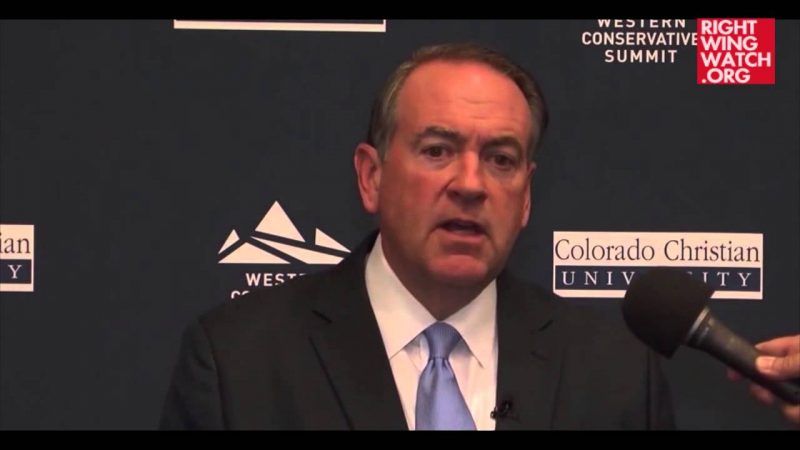Open Doors is an organization that is, according to its own slogan, dedicated to “serving persecuted Christians worldwide” with a mission to work in the “world’s most oppressive countries, strengthening Christians to stand strong in the face of persecution and equipping them to shine Christ’s light in these dark places.”
So it seems a little odd that the organization would be unveiling a pledge calling on presidential candidates to promise to protect “the right to employ religious arguments, or religiously-informed moral arguments, when contending for or against laws and policies, such as laws designed to protect the unborn and traditional marriage” here in America and to “nominate to the U.S. federal bench judges who are committed to protecting for all Americans the religious liberty rights described above.”
Seeing as every group and/or person we write about here at Right Wing Watch does nothing but “employ religious arguments, or religiously-informed moral arguments, when contending for or against laws and policies” on a daily basis, you might be confused as to why Open Doors thinks it is so important to get candidates to vow to protect it.
But that is because Open Doors seems to consider things like the ruling in the Propositon 8 case to be an example of how Christians are being persecuted in America, at least according to pledge co-author Dr. Thomas Farr:
Farr, visiting associate professor of Religion and International Affairs at Georgetown University’s Edmund A. Walsh School of Foreign Service, told The Christian Post Monday that it was vital to highlight issues of religious freedom in the U.S. because of efforts among those in positions of authority to “remove religious voices from American democracy.”
Farr, giving an example, pointed to “Judge Vaughn Walker’s reasoning in overturning California’s Prop 8 referendum included the assertion that religious and moral arguments against gay marriage are, in effect, irrational and therefore unconstitutional. If this reasoning were accepted, it would mean that religious arguments, and religiously-informed moral judgments, would be banned from our public debates, thereby ceding the field entirely to aggressively secular and anti-religious arguments. This would not be good for America’s citizens that are Muslim, Jewish, Christian, Buddhist, or adherents of any other religion, whose views of justice, freedom, equality, and the common good are influenced by their religious beliefs. Removing religious voices from our discourse would be unconstitutional and harmful for the country.”
According to “candidate support” page, all of the candidates are “considering” signing the pledge with the exception of Rick Santorum, who has already done so.








